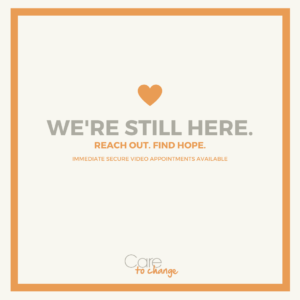For the most part, adjusting to life after quarantine means returning to some of what we knew before. Many of us are returning to our workplaces, familiar stores are reopening their doors, and we’re finally able to reconnect with the people who matter to us.
Of course, things aren’t exactly the same. We’re limiting close contact with others, wearing masks in public places, and extremely conscious about touching objects or surfaces that may have germs. Although COVID-19 remains a threat, the sense of panic seems to be fading, replaced with a sense of resignation. Our nerves are still on high alert, though, fueled by racial tensions and the recent riots, along with what promises to be the most contentious election season any of us can remember.
Someday, things will calm down. But until that someday arrives, please pay attention to your own mental health and take steps to protect it. I know — you say you’re doing fine. We all say that a lot these days, but the reality is that we’ve all been affected by the pandemic and these other issues. Even if we don’t personally know anyone who was sick, the heightened awareness of the possibility of infection has both emotional and physical effects on our bodies. When we see news coverage of senseless killings our pulses quicken. And when we read posts about the political opposition on social media, we simmer with anger.
All those emotions will pass, but they all leave uneasiness behind. Our brains respond to fear, anxiety, and anger by trying to protect us from threats. They flood our nervous system with chemicals to make us more alert and allow for faster escapes. But that protection begins to accumulate, and our brains start to assume that everything poses a threat. Ever feel or seen a rush of emotions that others describe as an over-reaction? If so, you know what I mean.
That’s why we need to make our own mental and physical health a priority. While we can’t control outside influences like COVID-19, we can choose who we listen to, watch, and read during this time. Instead of reading negative social media and watching hours of gloomy TV news, choose to read and watch things that inspire courage in you. Look for leaders who are making bold decisions and promoting acts of service. Listen closely for how they are thinking, and follow their lead in your personal life, taking bold steps to focus on helping others around you, starting with yourself.
Now that it is summer time, please make getting outside and intentionally moving your body a priority. Natural vitamin D and the endorphins released from movement will counteract the stress chemicals. And give yourself permission to sleep! Finally someone said it, right? Sleep helps return our bodies to steady state, so now is not the time for skimping on rest. Your brain and your body will thank you for these little changes that add up to combating the stress we all feel. Those closest to you will appreciate a calmer, steadier you, too.
And, if you feel completely overwhelmed and are having trouble finding a way forward, if you’re having trouble sleeping, or your feel too tired and stressed to even take a walk, please listen to your body and reach out for help. Needing help during times like this means you are human, not weak. Not a single person on this planet isn’t needed help at some point, and during these past few months, the stress of what we’re experiencing makes the need for help even greater. Find a counselor who can listen to what you’re experiencing and help you develop better short-term coping strategies and longer-term healthy habits. Our team is ready to help. We use methods proven to make a difference, and we have immediate openings, too.
We’re here when you’re ready to take that step.
